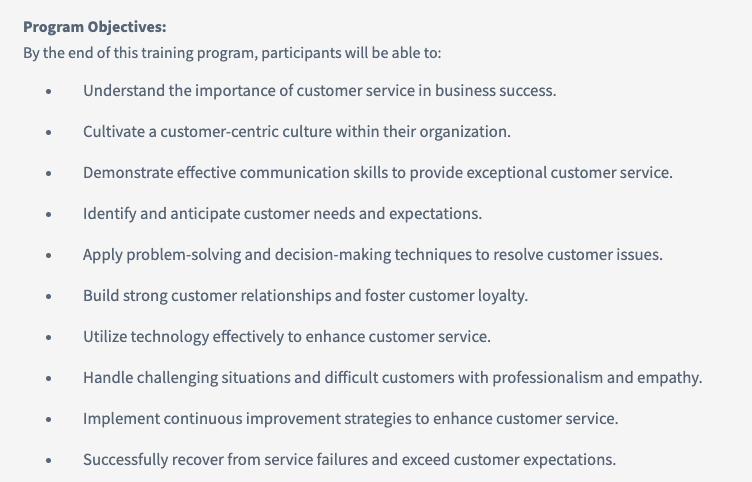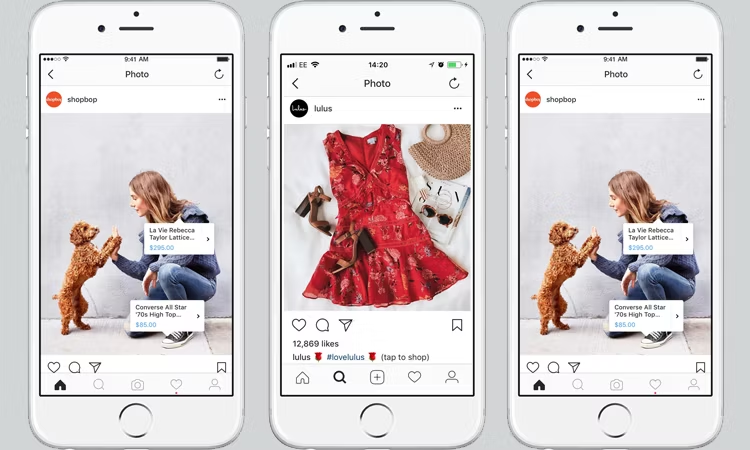Introduction
Digital marketing trends in 2024 are transforming the way businesses engage with customers. Staying ahead of these trends is crucial for maintaining a competitive edge. This article dives into the top digital marketing trends that industry experts are focusing on. Imagine using artificial intelligence to tailor customer experiences or leveraging video content to boost engagement.
These are just a few examples of how digital marketing is evolving. As you read on, you’ll discover the latest insights from marketing professionals and learn how to adapt your strategies to thrive in the dynamic digital landscape.
Key Takeaways:
- Rise of Artificial Intelligence in Digital Marketing: AI is revolutionizing how brands connect with audiences through personalized marketing, chatbots, and predictive analytics.
- Growth of Video Content Marketing: Video content is becoming more prevalent, with brands leveraging platforms like YouTube and Instagram to engage audiences through compelling visual storytelling.
- Emphasis on Personalization and Customer Experience: Personalized marketing strategies, supported by data analytics, are crucial for enhancing customer experiences and building loyalty.
- Expansion of Voice Search Optimization: With the increasing use of voice-activated devices, optimizing content for voice search is essential for reaching users effectively.
- Integration of Augmented Reality (AR) in Marketing: AR provides interactive and immersive experiences, allowing customers to visualize products in their environment, enhancing engagement and driving sales.
- Social Commerce and Shoppable Posts: Social media platforms are integrating shopping features, enabling users to purchase products directly from posts, thus simplifying the shopping experience.
- Data Privacy and Compliance: Adhering to data privacy regulations like GDPR and CCPA is crucial for building trust and avoiding legal issues.
- Use of Influencer Marketing: Collaborating with influencers can boost brand awareness and credibility, leveraging their loyal followings to drive conversions.
- Importance of Analytics and Data-Driven Decisions: Utilizing analytics tools to gather insights and make informed decisions is key to optimizing marketing strategies and achieving better results.
- Omnichannel Marketing Strategies: Creating a seamless and integrated customer experience across various channels enhances engagement and customer satisfaction, ensuring all touchpoints work together harmoniously.
1- Rise of Artificial Intelligence in Digital Marketing
Artificial intelligence in digital marketing is revolutionizing how brands connect with their audience. Imagine a chatbot that not only answers customer queries but also recommends products based on browsing history—this is AI in action. Businesses are using AI to analyze consumer behavior, personalize marketing campaigns, and predict trends. For example, AI-driven tools can segment audiences more effectively, ensuring that personalized messages hit the right mark.
In 2024, the focus will be on enhancing customer experiences through AI, making interactions smoother and more intuitive. The power of AI is transforming digital marketing, making it more efficient and impactful.
We got inspired by that video on YouTube that was uploaded by TedX
2- Growth of Video Content Marketing
According to PARK University, Video content marketing is booming in 2024, capturing audiences like never before. Think about the last time you watched a product review or a how-to tutorial—video content is everywhere!
Brands are leveraging platforms like YouTube, TikTok, and Instagram to engage viewers through compelling stories and visually appealing content. For instance, a short, engaging video can showcase a product’s benefits far more effectively than a static image. Companies are also using live videos for real-time interaction, boosting customer engagement and trust. With video content marketing, businesses can deliver their message creatively and memorably, driving higher engagement and conversions.
3- Emphasis on Personalization and Customer Experience
In 2024, personalization in digital marketing is more crucial than ever. Imagine receiving an email that not only addresses you by name but also recommends products based on your past purchases. This level of personalization creates a unique customer experience that feels tailored just for you. Brands are using data analytics and AI to craft personalized marketing strategies, making every interaction meaningful.
For example, insights from digital marketing courses at Haigazian University emphasize understanding consumer behavior to enhance customer experience. By focusing on personalization, businesses can boost customer loyalty and satisfaction, ensuring every customer feels valued and understood.

4- Expansion of Voice Search Optimization
Voice search optimization is gaining momentum in 2024, transforming how users interact with technology. Picture this: you’re cooking dinner, your hands are messy, and you need a recipe. Instead of typing, you simply ask your smart speaker. This convenience is why optimizing for voice search is essential. Businesses are now focusing on natural language processing to ensure their content is easily found through voice queries. For instance, local businesses can benefit immensely by optimizing for phrases like “nearest coffee shop” or “best pizza near me.”
With voice assistants becoming household staples, integrating voice search optimization into your digital marketing strategy is no longer optional—it’s a necessity. By understanding how consumers speak and search, brands can stay ahead in the ever-evolving digital landscape.
5- Integration of Augmented Reality (AR) in Marketing
Augmented reality (AR) is revolutionizing marketing in 2024, creating immersive experiences that captivate audiences. Imagine trying on clothes virtually before buying them or seeing how furniture looks in your living room without leaving your home. This is the power of AR in action. Brands like IKEA and Sephora are already leveraging AR to enhance customer engagement and drive sales.
By integrating AR, businesses can offer interactive experiences that are both engaging and informative. For instance, AR-powered apps can allow users to visualize products in their environment, making the shopping experience more personalized and enjoyable. As AR technology advances, it will become a staple in digital marketing strategies, offering innovative ways to connect with customers and stand out in a crowded market.
6- Social Commerce and Shoppable Posts
Social commerce and shoppable posts are transforming digital marketing in 2024, making it easier than ever to shop directly from social media. Imagine scrolling through Instagram and stumbling upon a stylish jacket you love—you can buy it right then and there without leaving the app. This seamless shopping experience is the essence of social commerce.

Platforms like Instagram, Facebook, and Pinterest have integrated shoppable posts, allowing businesses to tag products in their photos and videos. For example, fashion brands can showcase their latest collections, and users can click on the tags to make a purchase instantly. This not only enhances the user experience but also boosts conversion rates.

With social commerce, brands can reach customers where they spend most of their time, making shopping convenient and engaging. As more consumers embrace online shopping, integrating shoppable posts into your marketing strategy is a smart move to drive sales and stay ahead in the digital landscape.
7- Data Privacy and Compliance
In 2024, data privacy and compliance are more critical than ever in digital marketing. Imagine you’re shopping online and suddenly receive a targeted ad for a product you browsed earlier—this convenience comes with a responsibility to protect your data. Regulations like GDPR and CCPA enforce strict guidelines on how businesses handle personal information.
Companies must ensure they have user consent for data collection and provide transparency about data usage. For instance, e-commerce sites must implement clear cookie consent banners and detailed privacy policies. Compliance not only builds trust with consumers but also avoids hefty fines. Understanding these regulations and integrating them into your marketing strategy is crucial.
As consumers become more aware of their data rights, businesses that prioritize data privacy will stand out, fostering loyalty and trust. By focusing on compliance, companies can create a secure environment where customers feel safe sharing their information, ultimately enhancing their digital marketing efforts.
8- Use of Influencer Marketing
In 2024, influencer marketing is a powerhouse in digital marketing strategies. Picture this: your favorite Instagram personality shares a video about a new skincare product, and within minutes, thousands of their followers are checking out the brand’s website.
This is the magic of influencer marketing. Brands collaborate with influencers who have a loyal following to create authentic, relatable content. For example, a fitness brand partnering with a well-known athlete can reach a highly targeted audience. These influencers bring a personal touch, sharing their real-life experiences and building trust with their audience.
By leveraging the credibility of influencers, businesses can boost brand awareness and drive conversions. Whether it’s micro-influencers with niche audiences or mega-influencers with massive reach, the right partnership can significantly impact your marketing efforts. In 2024, integrating influencer marketing into your strategy is essential to connect with consumers genuinely and engagingly, making your brand stand out in a crowded digital space.
9- Importance of Analytics and Data-Driven Decisions
Analytics and data-driven decisions are at the heart of digital marketing success in 2024. Imagine launching a campaign without knowing who your audience is or how they interact with your content. It’s like sailing a ship without a compass. Analytics tools like Google Analytics and social media insights provide invaluable data about user behavior, engagement, and conversion rates.
For example, a retailer might discover through analytics that most sales come from mobile users, prompting a mobile-first strategy. Data-driven decisions enable businesses to refine their marketing tactics, allocate budgets effectively, and measure ROI accurately. By leveraging analytics, marketers can identify trends, optimize campaigns, and ultimately make smarter decisions that drive better results.
The key is to continuously monitor and adapt based on the data collected, ensuring that every marketing move is backed by solid evidence. In 2024, staying competitive means embracing the power of analytics to inform and improve your digital marketing strategies.
10- Omnichannel Marketing Strategies
Omnichannel marketing strategies are revolutionizing the customer journey in 2024. Imagine walking into a store, receiving a personalized discount on your phone, and then completing your purchase online—all seamlessly integrated. This is the power of omnichannel marketing. It ensures a cohesive experience across multiple channels, whether it’s social media, email, physical stores, or online platforms.
For example, a customer might discover a product on Instagram, receive a follow-up email with a special offer, and finally purchase it via a mobile app. This integrated approach not only enhances customer satisfaction but also drives higher engagement and loyalty. Companies leveraging omnichannel strategies can gather valuable insights from each touchpoint, allowing for more personalized and effective marketing campaigns.
As consumers demand more seamless interactions, adopting omnichannel marketing strategies is crucial for staying competitive and meeting customer expectations in a holistic way. By ensuring all channels work together harmoniously, businesses can create a more engaging and effective customer experience.
Conclusion
As we navigate the dynamic landscape of 2024, staying ahead of digital marketing trends is essential for businesses striving to thrive. Embracing artificial intelligence, leveraging the power of video content, and focusing on personalization are just a few ways to enhance customer experiences and drive engagement. Voice search optimization and augmented reality are transforming how consumers interact with brands, while social commerce and shoppable posts make purchasing seamless and integrated.
Ensuring data privacy and compliance builds trust, while influencer marketing amplifies your reach with authentic connections. Analytics and data-driven decisions provide the insights needed to refine strategies and measure success. Finally, omnichannel marketing strategies create a cohesive customer journey across all touchpoints, ensuring a seamless experience.
By incorporating these trends into your digital marketing strategy, you can connect with your audience more effectively, build stronger relationships, and stay competitive in an ever-evolving market. Embrace these changes, adapt to new technologies, and watch your business grow in 2024 and beyond.
FAQs on Digital Marketing Trends
What are the top digital marketing trends for 2024?
The top digital marketing trends include artificial intelligence, video content marketing, personalization, voice search optimization, augmented reality, social commerce, data privacy, influencer marketing, analytics, and omnichannel strategies.
How can AI improve my digital marketing efforts?
AI can enhance digital marketing by personalizing customer experiences, automating tasks like chatbots, and providing insights through data analysis. It helps in predicting trends and segmenting audiences effectively.
Why is video content so important in digital marketing?
Video content engages audiences more effectively than text or images, increases conversion rates, and is widely preferred on platforms like YouTube, Instagram, and TikTok. It’s a powerful tool for storytelling and demonstrating product features.
Why are analytics important in digital marketing?
Omnichannel marketing creates a seamless customer experience across multiple channels (social media, email, physical stores, online platforms). It ensures consistent messaging and interaction, enhancing customer satisfaction and loyalty.

